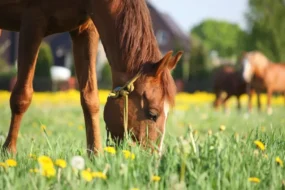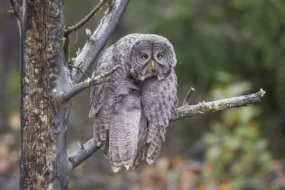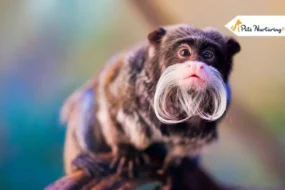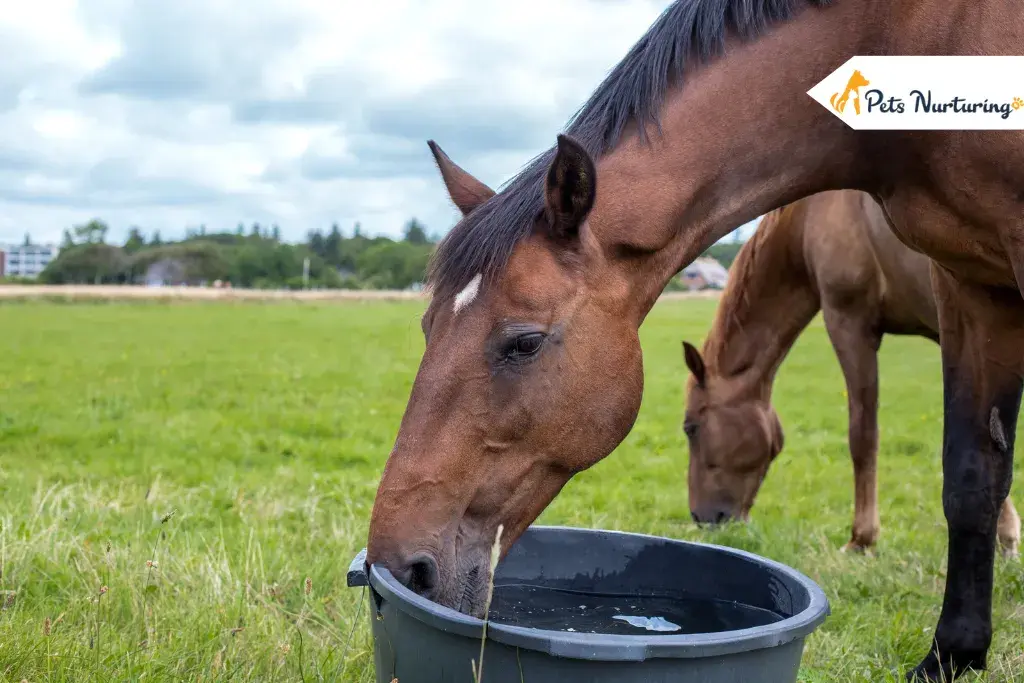
As the saying goes, ‘water is life.’ Without water, nothing can flourish or survive. And if it does, it’ll only be for a few days.When it comes to horses, water plays a significant role too. It keeps them healthy and energetic. It’s important to note that horses are sweaty animals; hence they can quickly dehydrate, leading to severe health issues or even death.
For example, a horse competing in endurance racing will likely lose a lot of electrolytes through sweat. As a result, maintaining proper fluid balance and muscle and nerve friction will be nearly impossible. In such an event, the limited electrolytes will interfere with the horse’s thirst response, worsening the dehydration state further. That said, ensuring your horse is hydrated is vital, especially if it’s participating in sports.
If you’re a horse owner and you have a question or two about hydration in horses, sit tight, as you’ll find the answers here!
How Much Water Should a Horse Drink?
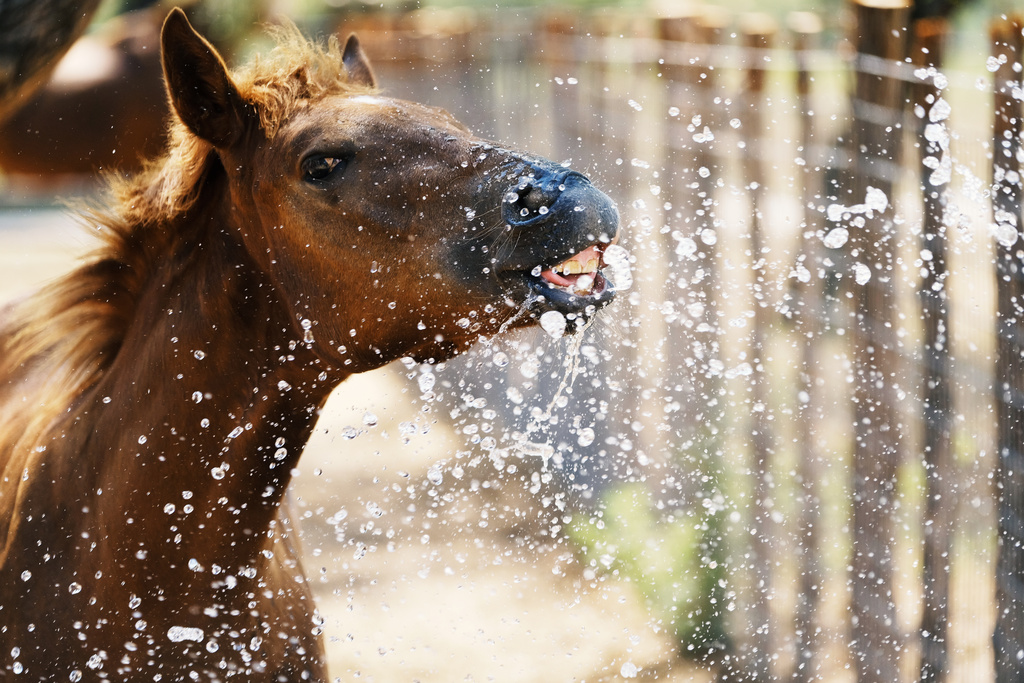
An average horse requires not less than ten gallons of water daily. However, like humans, horses differ in their water intake depending on the activities they engage in and the climate.
Every creature on earth requires food and water as horses also need food to eat and water to drink. They’ll survive for 20 to 25 days if you only provide them with water. However, they’ll survive for three to six days without water and only feed. After two days without water, some horses may refuse to eat and might experience life-threatening illnesses.
Similarly to humans, seasons affect the amount of water a horse requires for various reasons. For example, during summer, you’ll notice your horse enjoying cold fresh water, unlike in winter when horses refuse to drink ice-cold water. According to most horse owners, horses love indulging in warm water under freezing climates, just like how humans love a cup of hot coffee or tea under similar circumstances.
The feed a horse consumes plays a significant role in fluid intake. For example, during summer, when horses can graze on the fields and consume fresh pasture, they’ll satisfy their water needs through the pasture since it contains a good amount of water. For this reason, you might notice a decrease in water intake in your horse, which shouldn’t be a concern since the water is already compensated.
During winter, horses depend on hay or dried grass. Meaning they get a small amount of water from the feed. In such an event, your horse will likely require more water intake, unlike when feeding fresh grass.
For How Long Can a Horse Go Without Water?
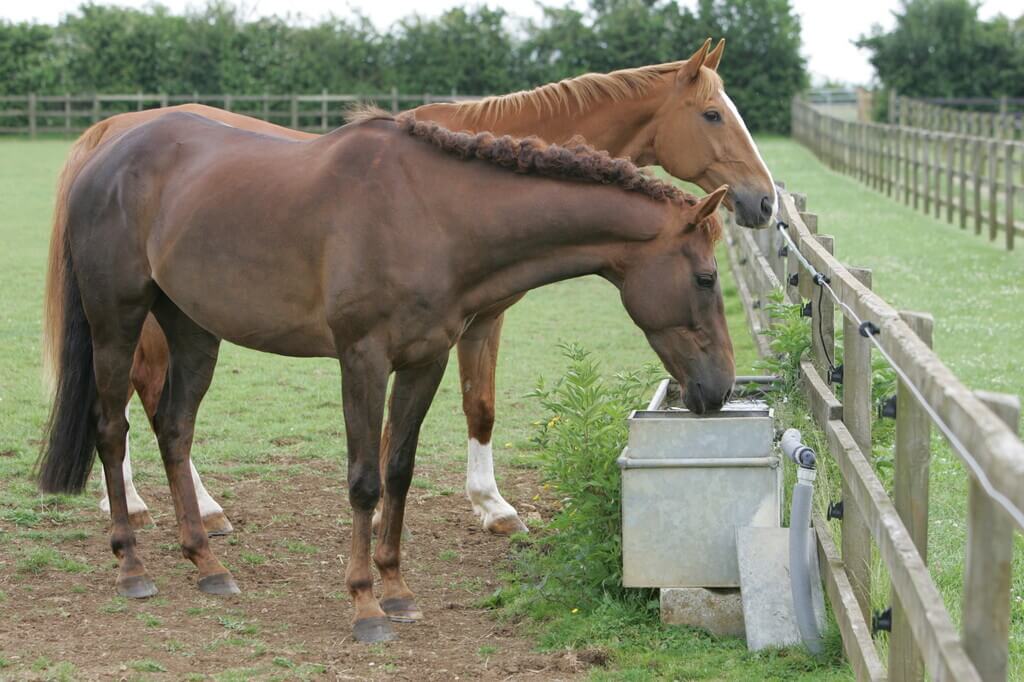
While a horse can survive for a few days without water, it can quickly die from dehydration. It’s, therefore, advisable to seek veterinary advice if your horse hasn’t drunk water for two days. As already stated, within six days of inadequate hydration, the horse’s organs will start to fail, which can be fatal.
Nevertheless, a horse’s water intake isn’t just all about drinking water. If you feed the horse with feeds containing water, it’ll only require a small amount of drinking water.
How Can You Encourage Your Horse to Drink Water?
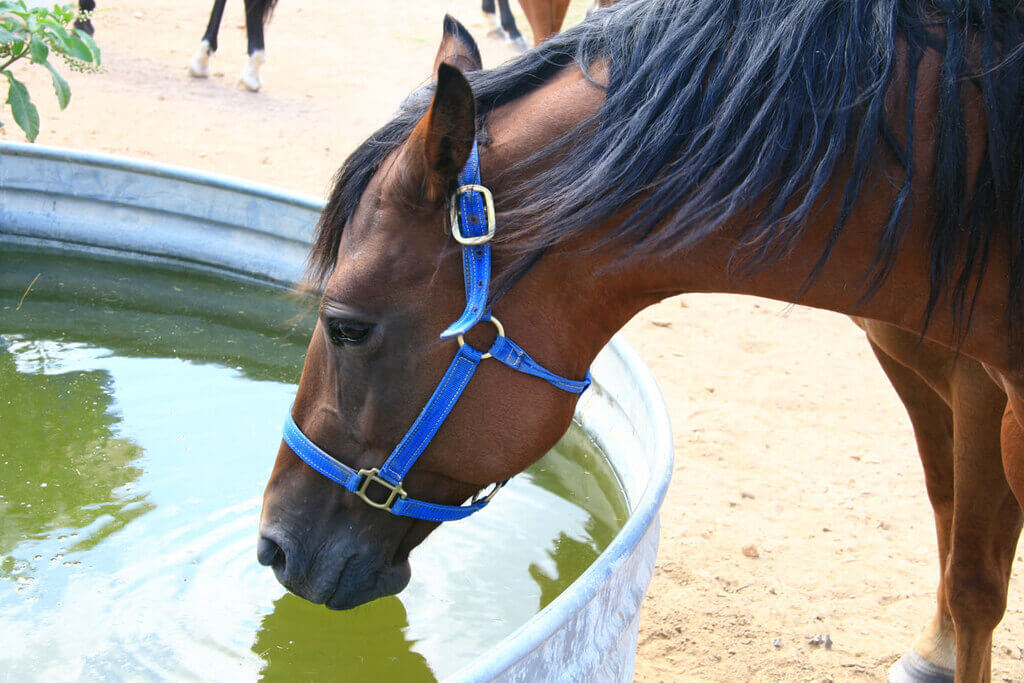
The best and most effective way to encourage a horse to drink enough water is by pr
providing adequate, clean, potable water. You should therefore check if the buckets have enough water and fill them accordingly.
Another way to up your horse’s water intake is soaking the hay and providing them with enough salt. Sodium balance will encourage thirst in your horse, leading to water intake.
Can a Horse Drink More Than Required?
Yes! A horse can overdrink water, especially if it suffers from health conditions like horse Cushing’s disease. Additionally, when it’s hot, and the horse is tired, it’ll likely drink lots of water. In such cases, you’ll notice that the horse has an increased urge to drink water.
Unfortunately, excess water can lead to kidney stress when eliminating excess water. It can also dilute the horse’s electrolytes, leading to the inability to regulate temperature.
Fortunately, healthy horses are less likely to drink beyond what’s required, making it easy for horse owners to notice when something’s wrong with a particular horse.
How Do You Know Your Horse Is Dehydrated?
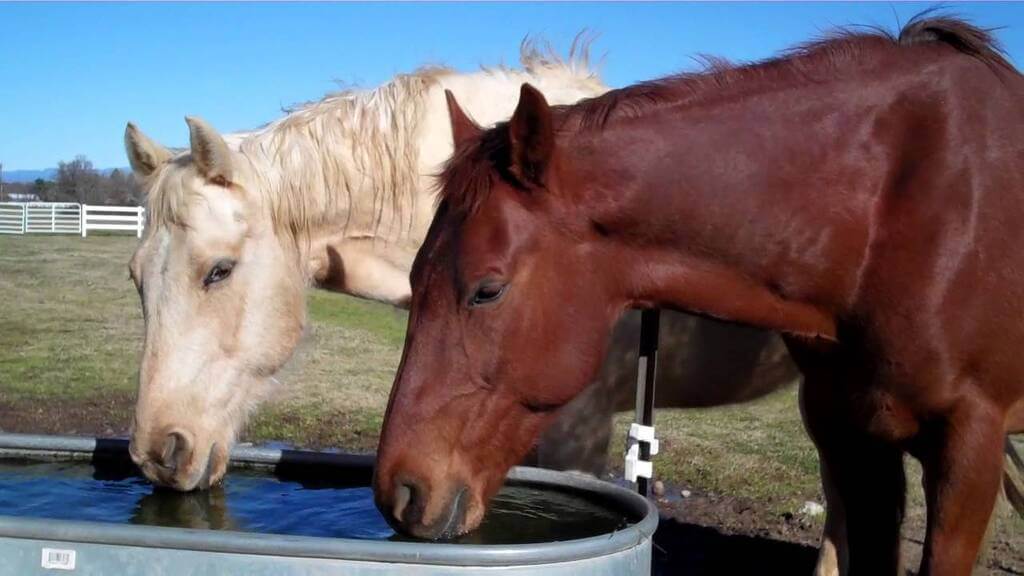
Understanding your horse’s typical vital signs is the key to determining whether or not it’s dehydrated. However, you can perform clinical or physical tests to determine its hydration state. As far as clinical tests are concerned, a high heart rate above 40 beats per minute is a clear sign of a dehydrated horse. On the other hand, a decreased performance and darker urine can also indicate the same.
A horse owner can also perform a pinch test to determine skin elasticity. A healthy horse’s skin should return to normal within two seconds after pinching. Additionally, check if the horse’s gums are slimy. If they aren’t, the horse is likely to be dehydrated.
Conclusion
Every creature requires water to survive and feel energetic, as do horses. If a horse doesn’t get enough water, it’s more likely to lack enough energy and, in severe cases, can die. For this reason, it’s crucial to determine your horse’s water intake requirements based on their feed, activities, and climate.
You should also avoid providing your horse with excess water to avoid overdrinking. If you think your horse is under-drinking or overdrinking, consult a veterinarian to determine why.
To get more information:








